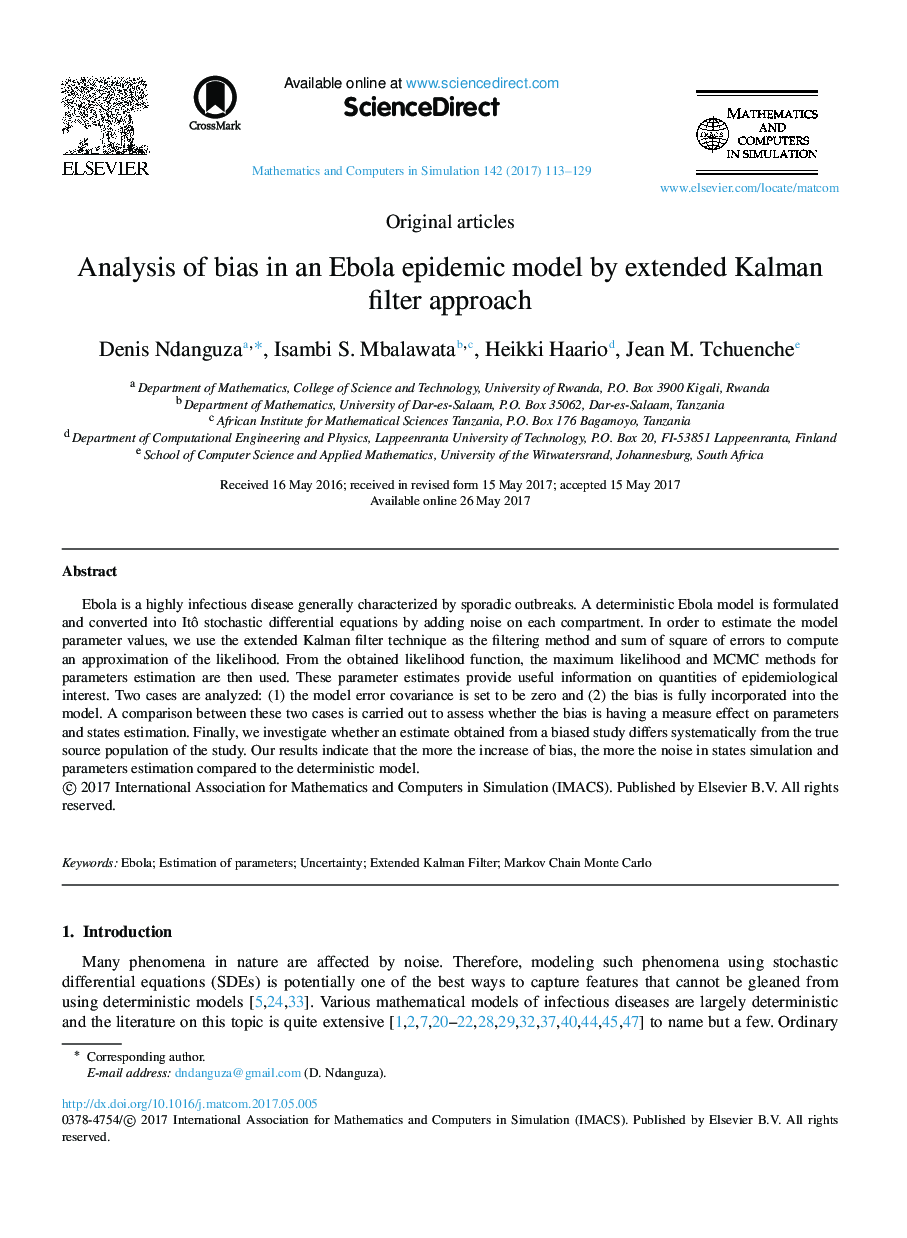| Article ID | Journal | Published Year | Pages | File Type |
|---|---|---|---|---|
| 5128012 | Mathematics and Computers in Simulation | 2017 | 17 Pages |
Ebola is a highly infectious disease generally characterized by sporadic outbreaks. A deterministic Ebola model is formulated and converted into Itô stochastic differential equations by adding noise on each compartment. In order to estimate the model parameter values, we use the extended Kalman filter technique as the filtering method and sum of square of errors to compute an approximation of the likelihood. From the obtained likelihood function, the maximum likelihood and MCMC methods for parameters estimation are then used. These parameter estimates provide useful information on quantities of epidemiological interest. Two cases are analyzed: (1) the model error covariance is set to be zero and (2) the bias is fully incorporated into the model. A comparison between these two cases is carried out to assess whether the bias is having a measure effect on parameters and states estimation. Finally, we investigate whether an estimate obtained from a biased study differs systematically from the true source population of the study. Our results indicate that the more the increase of bias, the more the noise in states simulation and parameters estimation compared to the deterministic model.
